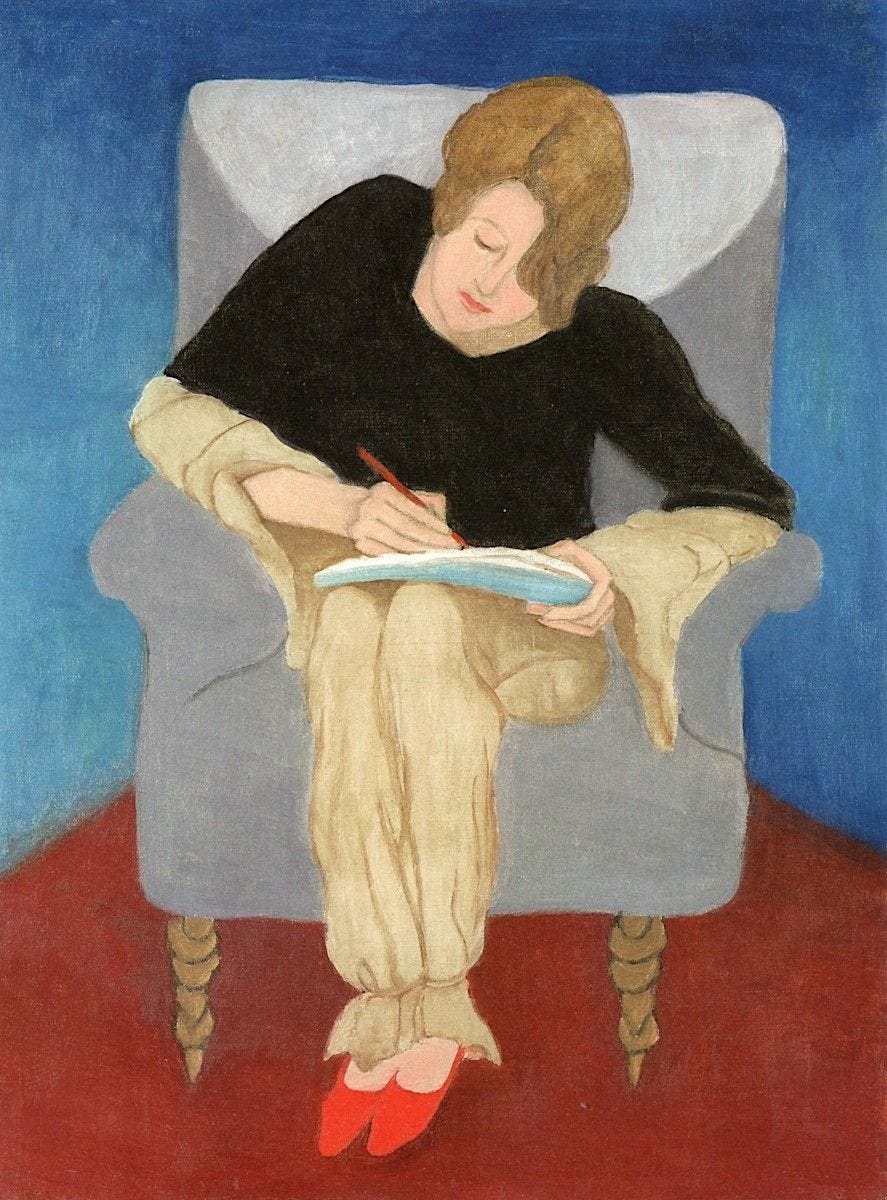How Can I Start My Story?
Your life sprawls every which way. Your story is one shining piece of it. Here's a road map to your mother lode.
"I don't know what to write," my memoir students used to say. What they mean is "I can't think of anything about my life that deserves to be captured on the page."
I've been there. Like every writer, I still have spasms of self-doubt. But I've learned to listen for the story calling, “Write me!”
Some stories are like good-luck charms in your pocket. You carry them around for years, waiting for the perfect moment to polish them to a shine at your desk. If you have a favorite story that consoles a friend, cracks up dinner guests or proves to your kids that mom once had trials and triumphs pretty much like theirs, you have one of these golden stories at the ready. You might make a few false starts or struggle to shape your tale, but you've already experienced its power to connect with other people.
Then there are the stories that hide in the waters of memory like small slippery fish. Just when you think you've glimpsed one, it darts into the shadows. I've tried to will these stories into being, but that never works. What does is slipping into a meditative state, the writer's equivalent of a lazy afternoon on a river bank, fishing rod in hand. I cast my line into Story River and wait to see what bites. This may sound about as methodical as dreaming, but I've learned a few prompts that incline my distractible brain toward the hidden stories.
Personal talismans
Think of something that that holds meaning for you. For young diarist Anne Frank it was the tree outside the window of the Secret Annex--her only connection with the natural world. For you it might be a favorite dress, an heirloom tablecloth or a long-vanished jalopy that somehow got you where you had to go.
While writing my first memoir, I spun a vignette around an antique pin my mother gave me for my birthday. It was broken and she warned me not to wear it without repairing the clasp. Why didn't my mother repair the pin herself before presenting it to me? Why did I feel compelled to wear it anyway, with the predictable result? And why was I disappointed when the lost pin turned up? I've never worn it since. The pin drew forth a multi-layered story that expresses an unspoken conflict between my mother and me.
Mentors, rogues and other formative characters
Think of someone who inspired you, touched you—or drove you crazy. When you look back on that person, what comes to mind? What do you see...or hear or smell? What do you feel? Are you enchanted, repelled, impressed or something else altogether? Mentally re-enter the world you shared together. Take your time. Ask yourself what changed because of your connection.
Turning points
Think of a time when...
* Someone believed in you more than you believed in yourself.
* You realized you had misjudged or underestimated someone.
* You stood up to someone who had intimidated you.
* You failed at something that mattered to you.
* You walked away from something that no longer worked for you (job, marriage, religion, etc.).
* You had to start over.
* You were disappointed or betrayed by someone you had trusted.
* You truly understood that you won’t live forever.
* Your body began to betray you.
* Your body astonished you with its power.
* You let go of a dream, a mission or a possession you had cherished.
* You lost someone or something close to your heart.
* You didn’t live up to your values.
* You realized you were your own woman.
*You experienced a depth of love that had been unimaginable to you.
* You experienced a sense of mastery.
* You ventured outside your comfort zone—and were glad you did.
* You discovered that you’re stronger than you knew.
* Something went wildly, hilariously wrong.
Don't feel constrained by these prompts. If they spark a more appealing idea, that's just fine. Your subject doesn't need my stamp of approval; it simply needs to summon vivid memories and tap strong emotions. If you care about this story you have lived, then it's important. And you have the opportunity to make your reader care, too.
Anything at all can be story material
There's no experience so odd or isolating that other people haven't been there. Take dating the gay kid in high school—and rolling around in the leaves with him because you have the same desires as any other teen and the straight guys don't know you exist.
This happened to me. Oh, the shame! I had to take a deep breath before telling this story in my Chatelaine column, so acute was the memory of his stricken face when I put his hand under my skirt. I needn't have worried. A number of readers wrote to say, "I dated a kid like that, and I'm so glad you shared your story."
By the way, stories that make you laugh are just as worthy of telling as the real gut-wrenchers. One of my most popular columns involved a vacation disaster.
There's just one kind of story you're wise not to write—for now. If you're in the throes of something painful—a breakup, say, or a rift in the family—you don't have the perspective to write about it. You can't see beyond your own anguish. Wait until you can look back and say to yourself, "So that's what happened and how it changed me." Meanwhile, you've got lots of other stories to write. I guarantee it.



